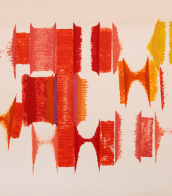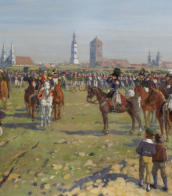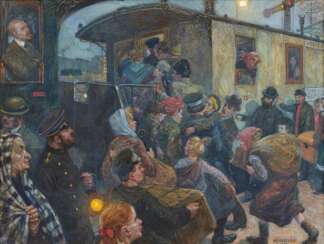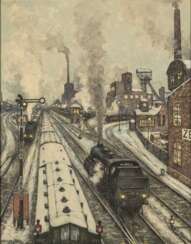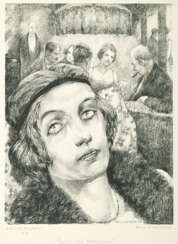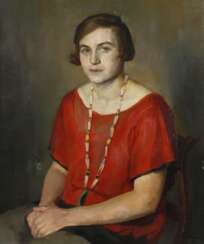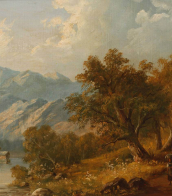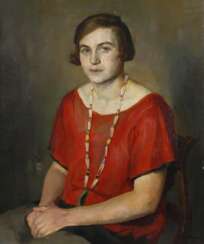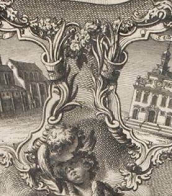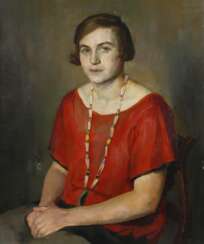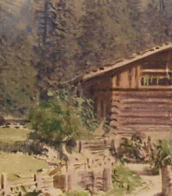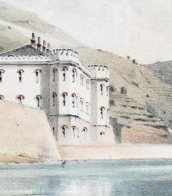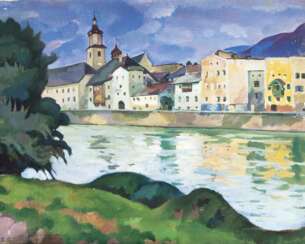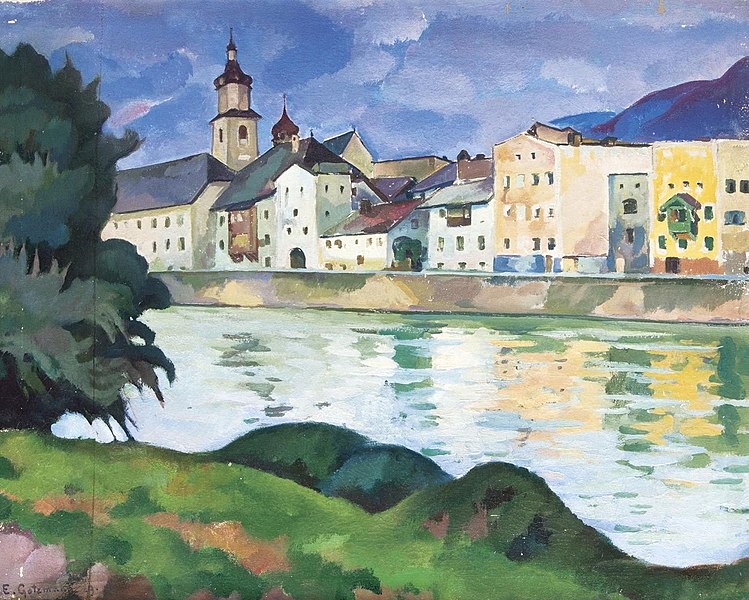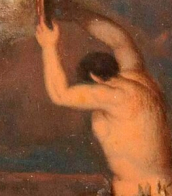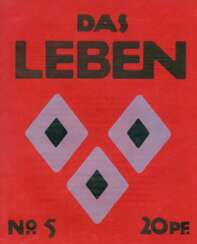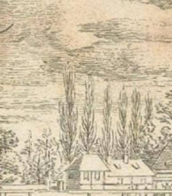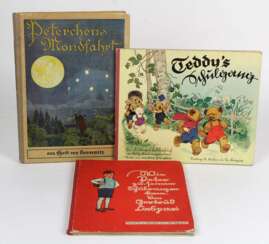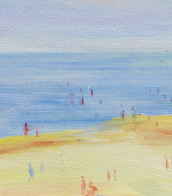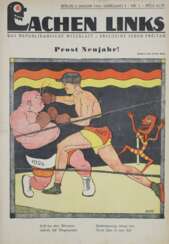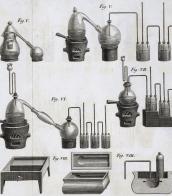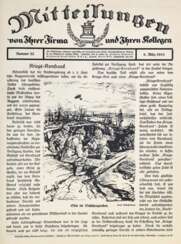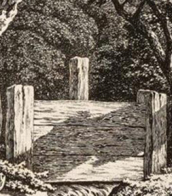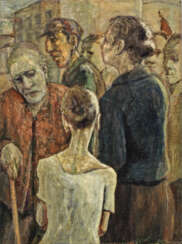baluschek
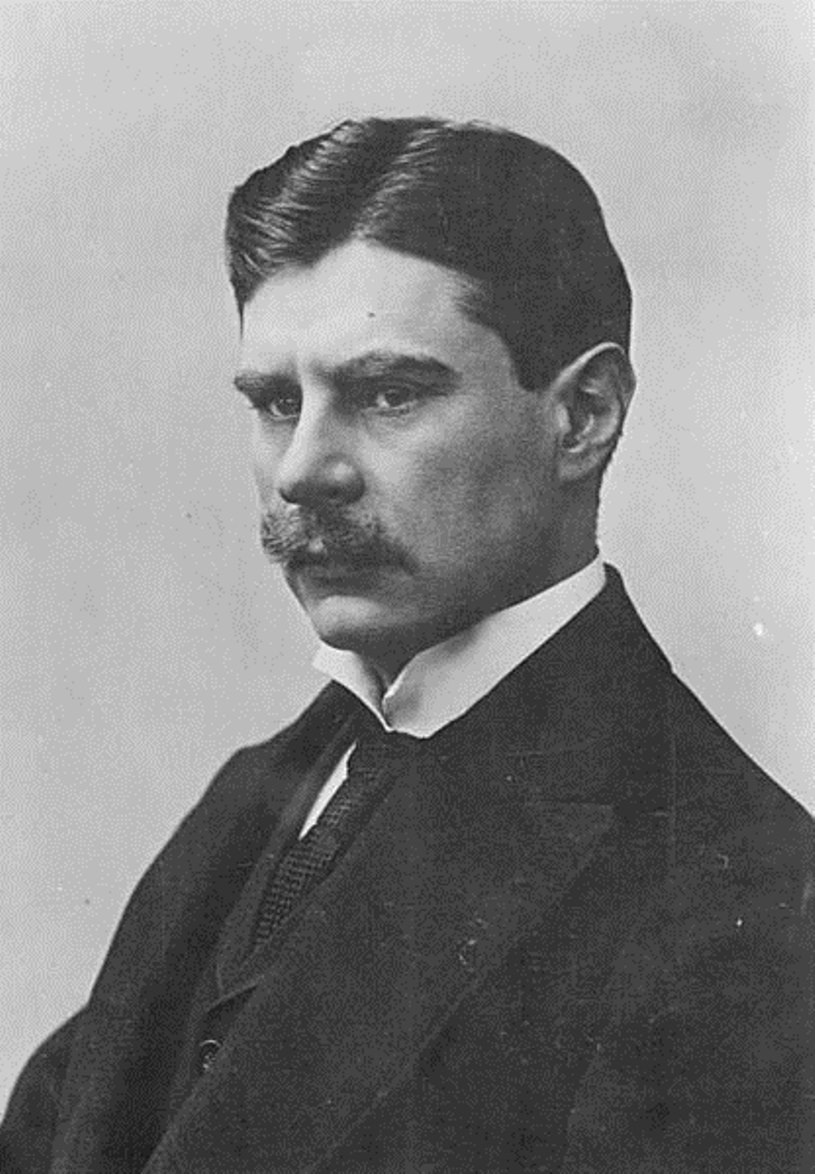
Hans Baluschek, full name Alphons Anton Alexander Hans Ernst Karl Maria Baluschek, was a German painter, graphic artist and writer, representative of the New Materiality style.
Baluschek studied at the Royal Academy of Arts, and in 1900 became a member of the Berlin Secession, a group of artists that also included Ernst Barlach, Max Beckmann, and Wassily Kandinsky. Baluschek was always socially critical, which was reflected in the subjects of his paintings. Many of his paintings are dedicated to the working class of Berlin, he addressed the gray everyday life of Berlin: gray air, gray walls, gray people. Baluschek is often categorized as a German Expressionist because of his emotional style, but his style has something of New Objectivity, Impressionism, and naive painting. He also drew illustrations for the popular children's book Little Peter's Trip to the Moon, and collaborated with periodicals as an illustrator.
World War I instilled patriotic feelings in Baluschek, and he painted a number of subjects on this theme. After the war, he joined the Social Democratic Party and became involved in labor movements. In 1926 he helped establish an artists' relief fund and later became director of the annual Berlin Exhibition. The German Nazis, who came to power in 1933, declared Baluschek a Marxist and a "degenerate artist," suspended him from all positions, and banned him from exhibiting.
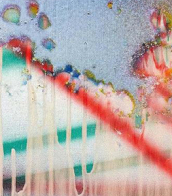

Hans Baluschek, full name Alphons Anton Alexander Hans Ernst Karl Maria Baluschek, was a German painter, graphic artist and writer, representative of the New Materiality style.
Baluschek studied at the Royal Academy of Arts, and in 1900 became a member of the Berlin Secession, a group of artists that also included Ernst Barlach, Max Beckmann, and Wassily Kandinsky. Baluschek was always socially critical, which was reflected in the subjects of his paintings. Many of his paintings are dedicated to the working class of Berlin, he addressed the gray everyday life of Berlin: gray air, gray walls, gray people. Baluschek is often categorized as a German Expressionist because of his emotional style, but his style has something of New Objectivity, Impressionism, and naive painting. He also drew illustrations for the popular children's book Little Peter's Trip to the Moon, and collaborated with periodicals as an illustrator.
World War I instilled patriotic feelings in Baluschek, and he painted a number of subjects on this theme. After the war, he joined the Social Democratic Party and became involved in labor movements. In 1926 he helped establish an artists' relief fund and later became director of the annual Berlin Exhibition. The German Nazis, who came to power in 1933, declared Baluschek a Marxist and a "degenerate artist," suspended him from all positions, and banned him from exhibiting.
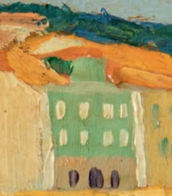

Hans Baluschek, full name Alphons Anton Alexander Hans Ernst Karl Maria Baluschek, was a German painter, graphic artist and writer, representative of the New Materiality style.
Baluschek studied at the Royal Academy of Arts, and in 1900 became a member of the Berlin Secession, a group of artists that also included Ernst Barlach, Max Beckmann, and Wassily Kandinsky. Baluschek was always socially critical, which was reflected in the subjects of his paintings. Many of his paintings are dedicated to the working class of Berlin, he addressed the gray everyday life of Berlin: gray air, gray walls, gray people. Baluschek is often categorized as a German Expressionist because of his emotional style, but his style has something of New Objectivity, Impressionism, and naive painting. He also drew illustrations for the popular children's book Little Peter's Trip to the Moon, and collaborated with periodicals as an illustrator.
World War I instilled patriotic feelings in Baluschek, and he painted a number of subjects on this theme. After the war, he joined the Social Democratic Party and became involved in labor movements. In 1926 he helped establish an artists' relief fund and later became director of the annual Berlin Exhibition. The German Nazis, who came to power in 1933, declared Baluschek a Marxist and a "degenerate artist," suspended him from all positions, and banned him from exhibiting.
